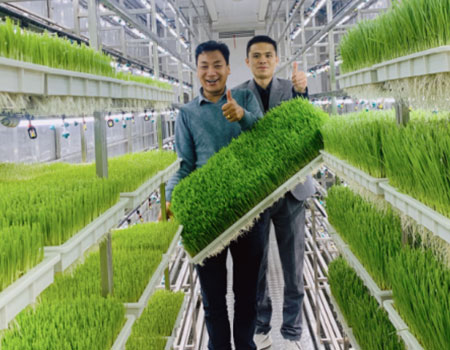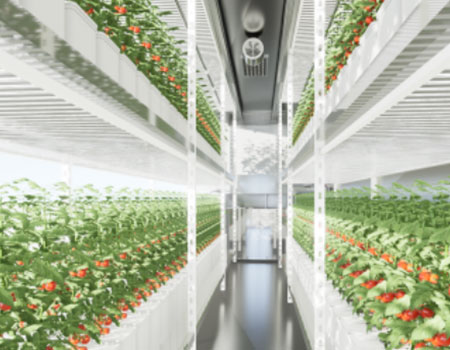The characteristic of agricultural production in Kenya is the threat of drought, with significant fluctuations in production. Geography of Kenya has a complex geographical environment, diverse climate types, extensive agricultural production, and basically depends on the weather. The country has made efforts to develop water conservancy and irrigation, but the cost is high and it is difficult to promote. In addition, animal husbandry is greatly affected by natural conditions, and often faces the problem of insufficient supply of forage.
As a major agricultural country, Kenya's agricultural production sector faces significant challenges in irrigation, processing, and supply chain. To address this issue, the Kenyan government has taken various measures, including introducing new agricultural technologies. Recently, container farms and hydroponic techniques have been introduced into agricultural production in Kenya to help farmers increase production.

Container farms are a new type of agricultural production method that utilizes the space of containers to grow crops. This method can save land and can be planted anywhere. Container farms have become a popular agricultural production method in Kenya. By using this method, farmers can plant more crops in a smaller space, thereby increasing yield.
Hydroponics is a soilless cultivation technique that uses water and nutrient solutions to cultivate plants. This technology can save water and fertilizers, and can be planted in any environment. In Kenya, due to the dry climate and barren land, hydroponic technology has become an important agricultural technology. By using hydroponic techniques, farmers can better control the growth environment of plants, thereby increasing yield.
Container hydroponic farms are a new type of agricultural production method that has many advantages.
Firstly, container hydroponic farms can be established anywhere, requiring only a flat site and water source.
Secondly, hydroponic agriculture does not require soil, which can greatly reduce land use and save resources.
Once again, as hydroponic agriculture grows in water, it can be produced in different seasons and is not affected by climate. In addition, hydroponic agriculture adopts advanced automation technology, which can achieve unmanned operation and reduce labor costs.
Finally, hydroponic agriculture produces crops with high quality, high yield, and good taste, which can meet market demand. Therefore, container hydroponic farms have multiple advantages such as flexibility, efficiency, and environmental friendliness, and are the trend of future agricultural development.
The combination of container farms and hydroponic technology can help farmers in Kenya increase production and improve the efficiency of agricultural production. This method can be planted anywhere and can save a lot of land and water resources. In the future, container farms and hydroponic technology are expected to become an indispensable part of Kenya's agricultural production.








